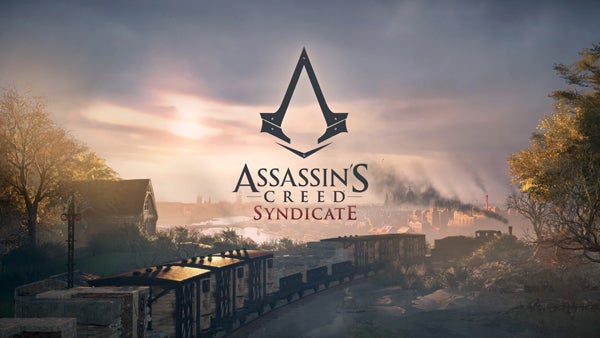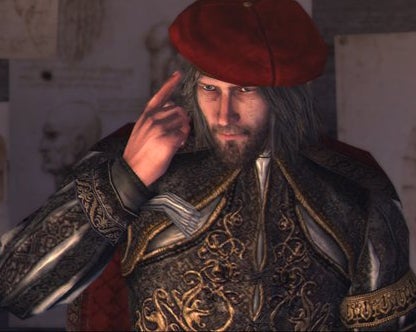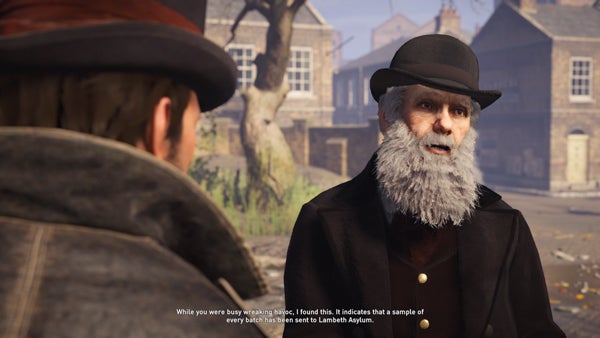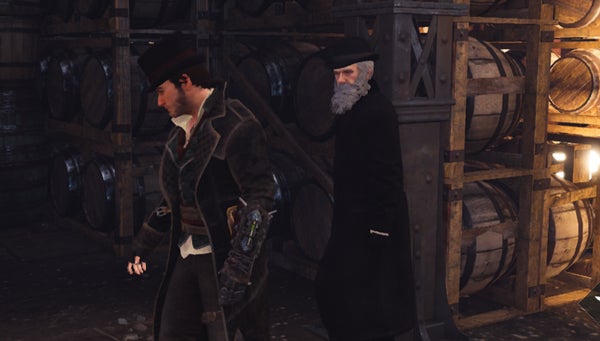This article was published in Scientific American’s former blog network and reflects the views of the author, not necessarily those of Scientific American
I suppose in some ways, writing about Assassin's Creed here on Symbiartic was inevitable. Or was it done of my own free will?
Quick overview in case you're not familiar with the game:
The Assassin's Creed video game series by Ubisoft takes place In our world, and details events in a secret history, where the centuries-old order of assassins fights to preserve free will in humankind. Their enemies are the Templars, who hope for peace and order through control. Artifacts, (called Pieces of Eden) from an advanced civilization lost before recorded history have occasionally cropped up, and members of the Assassin order have hidden them from the Templars. In the modern day, the Templars own technology that can help a person relive genetic memories of their ancestors, and they use this technology to try and discover where the assassins of the past have hidden the Pieces of Eden.
On supporting science journalism
If you're enjoying this article, consider supporting our award-winning journalism by subscribing. By purchasing a subscription you are helping to ensure the future of impactful stories about the discoveries and ideas shaping our world today.
Effectively, in the modern day you play a character reliving memories of an ancestor in the past: during the Crusades, the Italian Renaissance, the age of pirates, the American and French Revolutions, and more. The basic premise can be applied to many instances throughout history, and so novels, comics, and a (hopefully groundbreaking) movie have all been steadily expanding the universe outside of the games. Gameplay usually involves a lot of parkour through exquisitely recreated historical locations.

The title screen in Assassin's Creed: Syndicate, the 9th console release (sorta) in the series. This game takes place in Victorian England. Credit: Ubisoft
Perhaps I myself was primed to love these games. As a teenager, I fell I love with the novels of Tim Powers, each detailing supernatural secret histories set in the age of pirates and Romantic poets. I went to university for Fine Art Studio, and filled my first couple of years with courses about Renaissance Europe. My lifelong love of science, particularly paleontology and evolutionary biology expresses itself through my paintins.
Did Ubisoft anticipate people like me? People with a love for exploring ideas, for uncovering new thoughts, creatively unraveling mysteries? An audience not just in love with the fast-paced action of video games, but also steeped in history, in fine art, in science?
Of course they did. I didn't jump on board with the series with the first game, set in the Middle East during the Crusades, but when the sequel was announced set in Renaissance Florence, Venice, and San Gimignano, my interest was piqued. When Da Vinci was announced as a character in the game, I was all in.

Leonardo da Vinci, occasional ally and tech support to the Brotherhood of Assassins from Assassin's Creed 2. Credit: Ubisoft
A part of these games that is often neglected in reviews involves collecting art. From tiny Roman pantheon statuettes, to the works of Raphael, to Mayan sculpture, the Assassins seem to have a penchant for collecting artwork. Is it due to art being an expression of freedom, which the Assassins hold more dear than peace? You can even glide over Renaissance Italy in a recreation of da Vinci's flying machine, sing sea shanties, and engage in a thrilling rooftop escape over Revolutionary Paris after stealing the Montgolfier Brothers' balloon. The snarky descriptions by in-game historian Shaun Hastings on all of the events, people, and artistic works are superb.
Which brings me to meeting Charles Darwin.

Discussing conspiracies surrounding quack cough syrup elixir leads to a confrontation with Sir Richard Owen. Credit: Ubisoft
I'm not a person who has traveled very much (so far!). Part of the appeal of Assassin's Creed to stepping into another time and place, authentically recreated. The other appeal of the series is meeting people from history and interacting with them. And in the latest console release, Assassin's Creed Syndicate, we meet Charles Darwin, snooping around a storehouse of pseudoscientific cough syrup elixir. Darwin! My most lauded painting to date is Darwin Took Steps, a surreal portrait of history's science-hero. This is a game I must complete.

Vigorous and full of drive, Darwin makes a fast friend for the player-controlled Jacob Frye in the game. Credit: Ubisoft
The Assassin's Creed series has massive appeal and massive success, criticisms of particular entries in the series notwithstanding. This year, instead of a game, Ubisoft will release a movie that many of us hope will finally be a successful and excellent video game movie starring Michael Fassbender, Marion Cotillard and Michael K. Williams.
(Not the official trailer, but one overlaid with the incredible music by Jesper Kyd from AC:2)
Despite the mass appeal, with each entry of Assassin's Creed, I feel like Ubisoft is creating a playable work of historical art made just for me. There's just something about it. Liking this game is somehow hidden in my DNA and experience.
"What is a (person) but the sum of (their) memories? We are the stories we live. The tales we tell our selves." - Subject 16 from Assassin's Creed: Revelations
A few recommendations if you'd like to learn more about Assassin's Creed:
The concept art books. Particularly Assassin's Creed: Black Flag and Assassin's Creed: Unity.
The Artstation account of Senior Art Director Raphael Lacoste.
Music! The best of Jesper Kyd; AC:3 by Lorne Balfe; and my favourite, the melancholy soundtrack to AC: Rogue by Elitsa Alexandrova.
Toys by McFarlane. Sadly, no Evie Frye yet. Here's my collection so far: